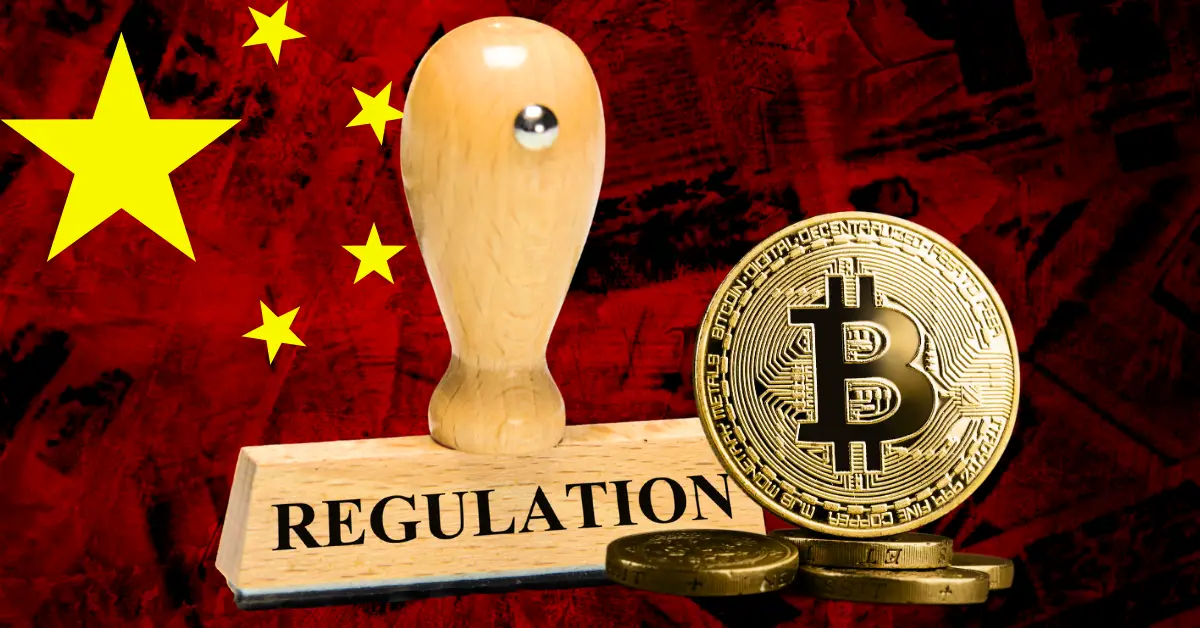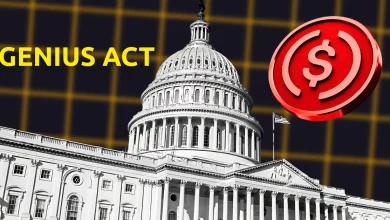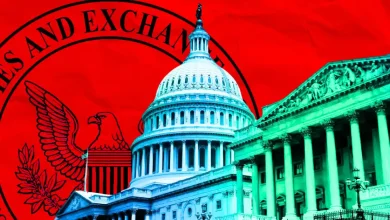
China holds a large amount of seized cryptocurrencies from illegal activities, which local governments are selling for income.
The lack of clear regulations for handling these seized crypto assets in China is causing confusion and raising concerns about potential corruption.
Experts are urging China to develop official rules for managing seized crypto, potentially involving the central bank.
China banned cryptocurrency trading in 2021. But behind closed doors, something unexpected has been happening. Local governments have quietly built up a massive stash of digital assets – seized from criminal cases – and are now figuring out how to turn that into cash.
Here’s the twist. They’re selling it off, despite the national ban. And as billions of dollars move through these quiet crypto sales, legal experts and courts are sounding the alarm. With no clear rules in place, and so much money involved, the stakes are only getting higher.
China Offloading Crypto Through Private Firms
Despite the official ban, recent reports show that China has been quietly selling large amounts of Bitcoin. By the end of 2023, local governments held around 15,000 Bitcoin – worth roughly $1.4 billion. These sales have become an unexpected and major source of income for some regions.
So far, China has reportedly sold about 194,000 Bitcoin, worth around $16 billion. That makes it the second-largest Bitcoin holder in the world after the United States, according to data from Bitbo. It’s a sign that China is taking a mixed and strategic approach to crypto – banning it on one hand, but using it on the other.
How Are They Selling It? Private Companies Step In
Local governments aren’t selling this crypto themselves. Instead, they’re working with private firms like Jiafenxiang. These companies have sold over 3 billion yuan worth of crypto since 2018. After selling the assets, the money is converted into yuan and added to local government accounts.
The problem? There’s no clear system for how this should be done. The lack of regulation is raising concerns across the legal and financial worlds.
Experts Want Clear Rules
Right now, there are no national guidelines on how to deal with seized cryptocurrencies. As a result, different regions are handling things their own way, leading to confusion and inconsistency.
Lawyers warn that this situation could encourage illegal behavior and increase the risk of corruption. A Reuters report highlights growing worries about the lack of oversight and accountability.
China Considers New Rules
Senior judges, lawyers, and police officials are now discussing new rules that could change how seized crypto is handled in China. These talks are happening during a time of growing tension with the United States—where President Trump, now in his second term, is planning to deregulate crypto and build a national Bitcoin reserve.
Professor Chen Shi from Zhongnan University pointed out that selling seized crypto goes against the original ban and can only be a temporary solution. He said better rules are urgently needed, especially as more cases and bigger sums of money are involved.
Could the Central Bank Take Control?
At a seminar held in January, lawyer Guo Zhihao noted the clear conflict: China bans crypto trading, yet local governments are selling seized digital assets. He suggested that the country’s central bank should oversee the process—either by selling the assets abroad or setting up a national reserve, similar to Trump’s plan in the U.S.
Although the seminar didn’t lead to immediate changes, most experts agreed on one thing: China needs to officially recognize crypto and create a clear process for managing seized assets.
Experts suggest that China should centralize seized crypto disposal through licensed offshore exchanges, with some also suggesting creating a crypto sovereign fund in Hong Kong to maximize the value of seized cryptocurrencies.
- Also Read :
- Should You Sell Your Bitcoin for Gold? Top Analyst Slams Crypto as Gold Price Hits ATH
- ,
Crypto Crimes on the Rise!
In 2023, China saw a big jump in crypto-related crimes, including internet fraud, money laundering, and illegal gambling. The total amount of money tied to these crimes reached $59 billion. More than 3,000 people were prosecuted for money laundering alone.
At the same time, government revenues from confiscated assets surged. Local governments reported a 65% rise in income from seizures, reaching a record $378 billion. For some cities, crypto has become a major financial lifeline – which only adds to the pressure to regulate it properly.
Never Miss a Beat in the Crypto World!
Stay ahead with breaking news, expert analysis, and real-time updates on the latest trends in Bitcoin, altcoins, DeFi, NFTs, and more.
China now faces a tough decision. With so much money at stake and legal confusion growing, the country must decide whether to stick with its strict ban – or rethink its strategy and create clear rules for the future. The world watches.
FAQs
Bitcoin trading is banned in China, but holding crypto isn’t illegal. Access is limited and often happens through overseas platforms.
There’s no official indication China is using XRP; the government maintains a cautious stance on most cryptocurrencies.







